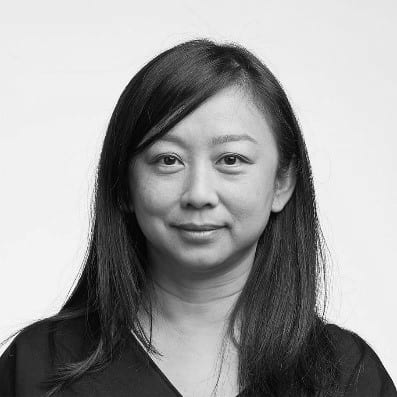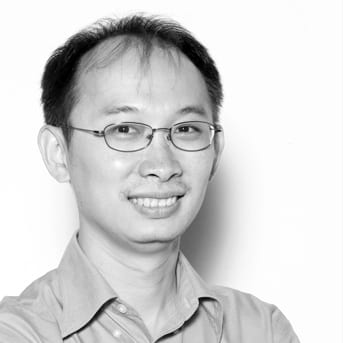Sophia TAN and HO Shen Yong
Centre for Teaching, Learning, and Pedagogy (CTLP),
Institute for Pedagogical Innovation, Research, and Excellence (InsPIRE)
Nanyang Technological University (NTU)
Sophia and Shen Yong share the various initiatives organised by CTLP and InsPIRE to support faculty at NTU in gaining a better understanding of GenAI in order to enhance their teaching.
This post is featured in a Special issue on “Navigating Generative AI in Higher Education”, where academic developers in Singapore’s institutions of higher learning discuss how they are working with their student and faculty colleagues to effectively engage with and navigate generative AI in teaching and learning.

Photo by Igor Omilaev on Unsplash.
Tan, S. (2024, January 29). Navigating the very real threats of generative AI. Teaching Connections. https://blog.nus.edu.sg/teachingconnections/2024/01/29/navigating-the-very-real-threats-of-generative-ai/
On 17th February of 2023, the Centre for Teaching, Learning and Pedagogy (CTLP) under Nanyang Technological University (NTU)’s Institute for Pedagogical Innovation, Research, and Excellence (InsPIRE) offered our Centre’s first webinar on generative artificial intelligence (GenAI). This was one week after ChatGPT had officially become the fastest growing application in history. The webinar, titled “Panic Stations in Pedagogy: The Very Real Threat of ChatGPT”, might have been the first time that some of us were alerted to its “very real threats”.
The NTU community was ablaze with questions on how this might affect teaching and learning, and burning with increasing anxiety about student cheating and plagiarism. Our immediate concern was “AI-proofing” our assignments. How could we be sure of our long-held academic standards if there is uncertainty of the authenticity of student-generated artefacts?
By March 2023, our Deputy Provost (Education) Professor Tan Ooi Kiang had unveiled NTU’s forward-thinking stance on GenAI in education. In his articulation of NTU’s position, Prof Tan would set the tone for how we would tackle these challenges. We would focus on the productive, ethical, and critical use of GenAI while developing high-level cognitive skills and creativity through the synthesis of ideas and in-depth analysis (Teaching & Learning in a GenAI World, n.d.). We would continue to expect our students to “practice high standards of academic and professional honesty and integrity.”
In line with this position, NTU’s guidelines for teaching focused on assessing students’ learning processes, setting clear expectations, incorporating AI-based tools in teaching, and underscoring the value of university learning. To that end, InsPIRE had offered multiple ways to support faculty.
In May 2023, InsPIRE organised a retreat around the theme “Re-imagining How Teaching and Learning Should Be Transformed In The Next Two Years At Nanyang Technological University”. Quite propitiously, InsPIRE had been promoting “Authentic Learning” at NTU as one of our NTU Education 2025 initiatives prior to the disruption of GenAI (Designing Authentic Learning Experiences, n.d.). The idea was to create learning experiences that were contextualised in real world problems, providing greater relevance to the student. It seemed that having real-world relevance was a way to circumvent the undesirable potential for undetectable plagiarism that ChatGPT presented. While InsPIRE saw an opportune synergy between Authentic Learning and disruptive emerging technologies, faculty at NTU had different reactions to it. Those who were proponents of authentic learning had already been practicing it, while others questioned it as a solution to the very real threats of GenAI.
To clarify, Authentic Learning was not meant to be a solution to our problems, but that is for another blog post. Nevertheless, the retreat was a major event during which most NTU academic leadership were invited to learn about GenAI. It was an eye-opening experience which we hoped would eventually impact every faculty in the Schools. For two days, we sat in a room packed with round tables to listen, discuss, and explore GenAI and its applications and implications. This sparked ideas and plans for changes, including re-designing our newly implemented one-year old Interdisciplinary Collaborative Core (ICC) Courses to infuse AI literacy for all students, creating awareness and understanding.
These large faculty development events were offered again in July/August of 2023 at NTU, this time to more than 500 participants over a period of a few weeks. At that time, only a third of the participants who filled out our pre-workshop needs survey had heard of or used GenAI tools. Concurrently, CTLP offered faculty one-on-one consultations on assessment and course re-design.
By November of 2023, the tides were turned. Faculty members at NTU were more aware of the applications of AI tools. Multiple research projects had started in this area. In hindsight, one of the main challenges of navigating NTU through the GenAI landscape was probably the sheer size and diversity of the university. Different Schools, disciplines and faculty require different approaches, support and interpretations of the meanings and impacts of GenAI.
What worked was our ability to balance freedom and responsibility: NTU chose not to impose overly restrictive guidelines, allowing faculty flexibility while maintaining ethical boundaries. There was a consultative collaborative effort between InsPIRE, academic leaders of NTU, and faculty to formulate policies and positions on academic integrity.
In the long-term, the university aims to diminish the importance of examinations, and as such, lessen the very real threat of ChatGPT. We hope to focus on the process of learning through authentic learning experiences, and creating possibilities for improving student learning.
References
Teaching & Learning in a GenAI World (n.d.). Nanyang Technological University. https://www.ntu.edu.sg/education/inspire/teaching-learning-in-a-genai-world
Designing Authentic Learning Experinces (n.d.). Nanyang Technological University. https://www.ntu.edu.sg/education/inspire/designing-authentic-learning-experiences
 |
Sophia TAN is the Lead of Faculty Development at CTLP. With over 20 years of work experience in higher education settings overseas and in Singapore, she has deepened her knowledge in the field of teaching and learning. Prior to joining CTLP, Sophia served as a professor of Educational Technology, shaping the minds of pre-service teachers. Additionally, she has provided consulting services to schools and administrators and conducted workshops and seminars to support their professional development. Sophia holds a PhD in Learning, Technology, and Culture, and is passionate about sharing her love for teaching and scholarship with faculty and students alike. Sophia can be reached at SophiaTan@ntu.edu.sg. |
 |
Dr HO Shen Yong is the Executive Director of the Institute of Pedagogical Innovation, Research and Excellence (InsPIRE). Prior to this, he has also served as the Associate Dean (Academic) at College of Science (2019-2022). Dr Ho is passionate about education; as the lecturer for the freshman engineering Physics course, he has been actively developing learning activities for students to help them enhance their thinking skills and appreciate connections between textbook knowledge and applications in the real world. Dr Ho has also helped set up the Making and Tinkering course in 2014 where students are free to design and construct almost any technological prototype within a semester. To date, the course has more than 140 student projects. As Associate Dean (Acad), he played a key role in preparing faculty staff in the use of technology for teaching during the COVID-19 pandemic. In the last year, Dr Ho was tasked to formulate university-level responses in education with regards to the emergence of Generative AI. Dr Ho is also the recipient of various teaching awards at NTU, including the Nanyang Education Award (University, Gold) in 2018. Dr Ho can be reached at hosy@ntu.edu.sg. |

